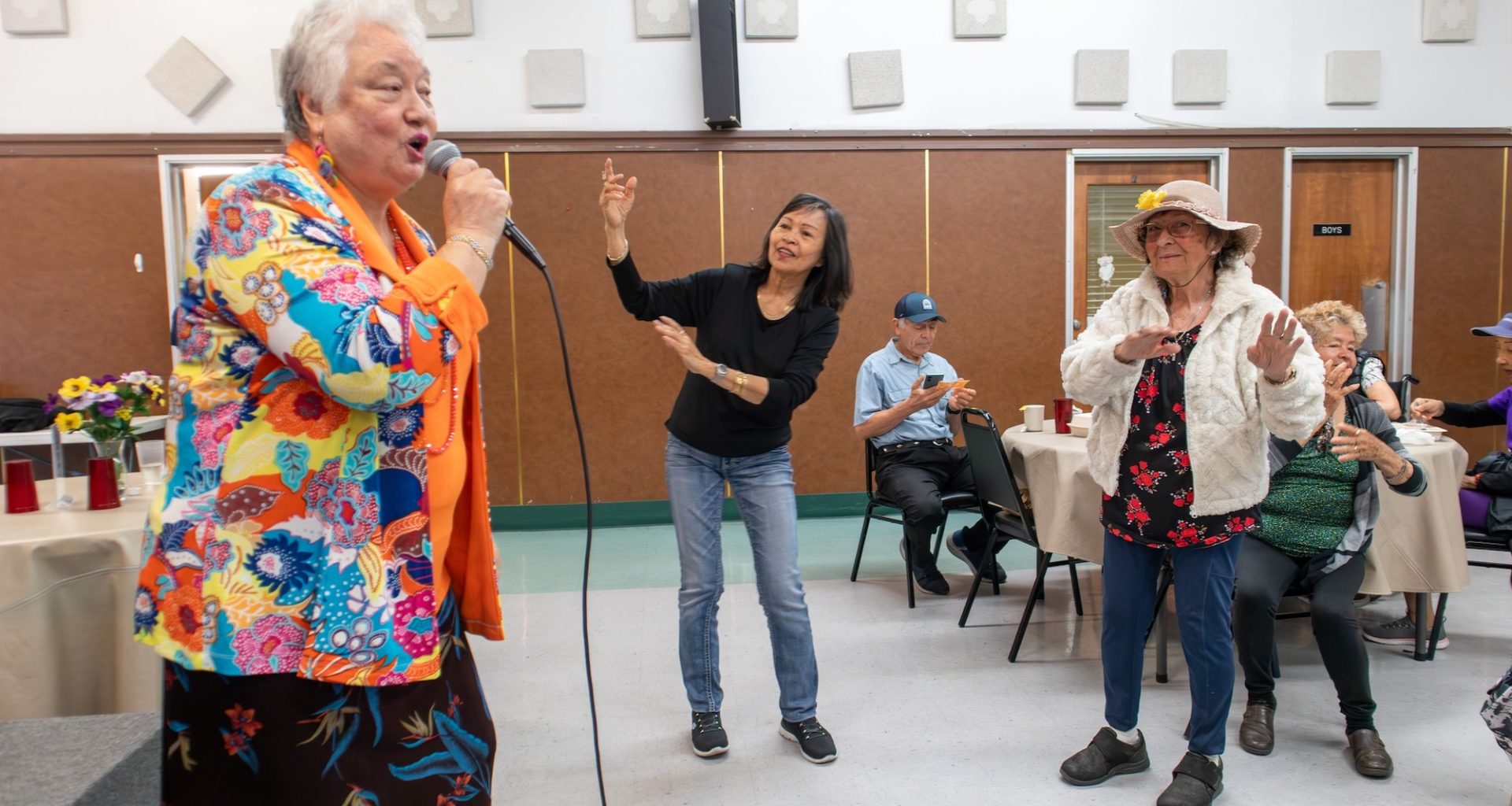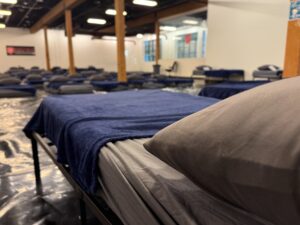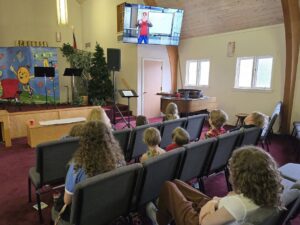The Salvation Army’s Club 60 offers older adults connection, care and purpose.
It’s 10 a.m. Monday at The Salvation Army Chula Vista (California) Corps, and seniors are waiting for a turn at the mic.
Passersby might catch the sound of songs like “My Girl” or “I Will Survive” drifting out of the building—which, on this day, could be the most happening spot in town. There’s no lull in the action until the sound shuts down at noon.
It’s karaoke day at the corps’ Club 60 senior nutrition program. Participants aren’t there just for a meal; they’re there to bring the house down with singing, dancing, laughter and applause.
“It’s their place,” said Harold T. Ross, Site Manager for the Chula Vista Corps Senior Nutrition Program. “We don’t impose a lot of rules and regulations. We want people to feel comfortable coming here.”
And they do. Ross said about 80-90 seniors take part in the Monday sessions, with many staying the full two hours.
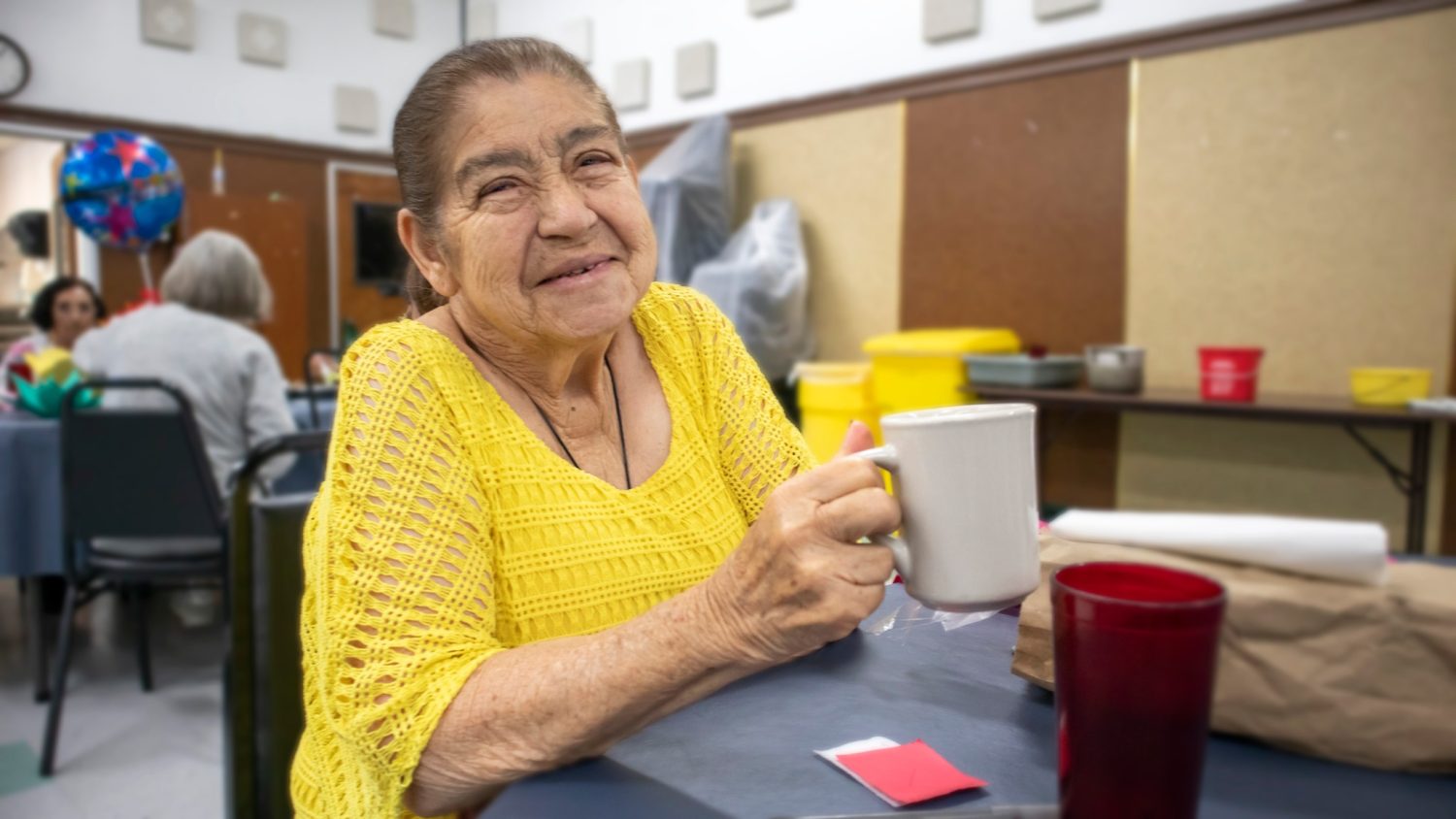
“People get up out of their seats and move,” he said. “The music motivates them. When we have something like karaoke, people don’t just eat and leave—they want to stick around.”
A couple—Club 60 participants themselves—bring their karaoke machine every Monday and act as MCs for the morning entertainment. Some of the other helpers are volunteers, while others are part of the Senior Community Service Employment Program, which offers paid job training for older adults.
The Salvation Army’s Club 60 senior nutrition program operates in other locations throughout San Diego County, including El Cajon, San Diego Citadel, Oceanside and Centre City. On a typical Monday, the program serves more than 200 seniors combined.
At first glance, it may appear to be just a lunch program, but Club 60 is much more than that. It’s designed to enhance seniors’ overall quality of life—promoting spiritual, emotional and social well-being while fostering a strong sense of community. Activities vary by location, like bingo, art and the occasional dance class. No matter the programming, the spirit is the same: communal connection around lunch.
Meals are served at no cost to participants. Club 60 is funded by the county through the Older Americans Act, with additional support from local donations. Each center offers rides to ensure seniors with mobility or transportation challenges can attend.
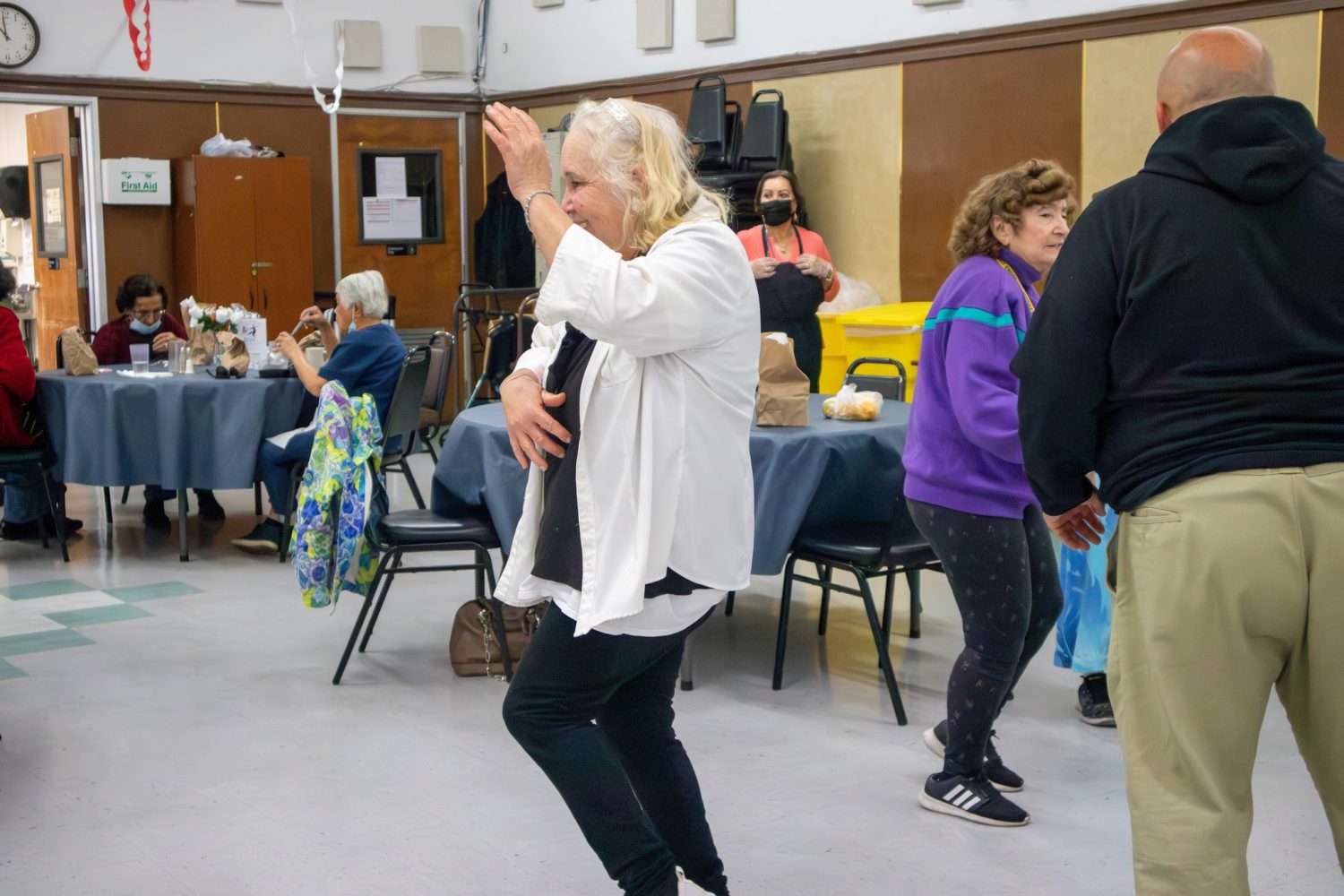
In Chula Vista, a newcomer can walk in and immediately feel welcome. Ross said they see new faces nearly every week.
Greg Power, a regular at Club 60, was once one of those new faces—though he wasn’t quite 60 when he first arrived.
“A friend of mine talked me into it, and I wasn’t even 60 years old, so I lied about my age,” he said, laughing. “I gave my birth year as 1946 instead of 1947, and they still have it down that way.”
He had no idea at the time that he would have been welcomed regardless—but he knew one thing: Club 60 was a place he wanted to be.
Now a confident regular behind the mic, Power said the experience has helped him shed lifelong stage fright.
“You’re not trying to be perfect… all that goes away,” he said. “You just have a good time.”
Ross said he’s seen many friendships form at Club 60—some of them life-changing.
He recalled two women, Lulu and Michelle, who met outside the building and walked in together for the first time. Michelle had been using a walker for three years. As they became friends, Lulu encouraged her to improve her diet and get moving again. Today, Michelle no longer uses a walker.
“Lulu invested in Michelle as a friend,” Ross said. It’s crazy—how friends and community can improve lives.”
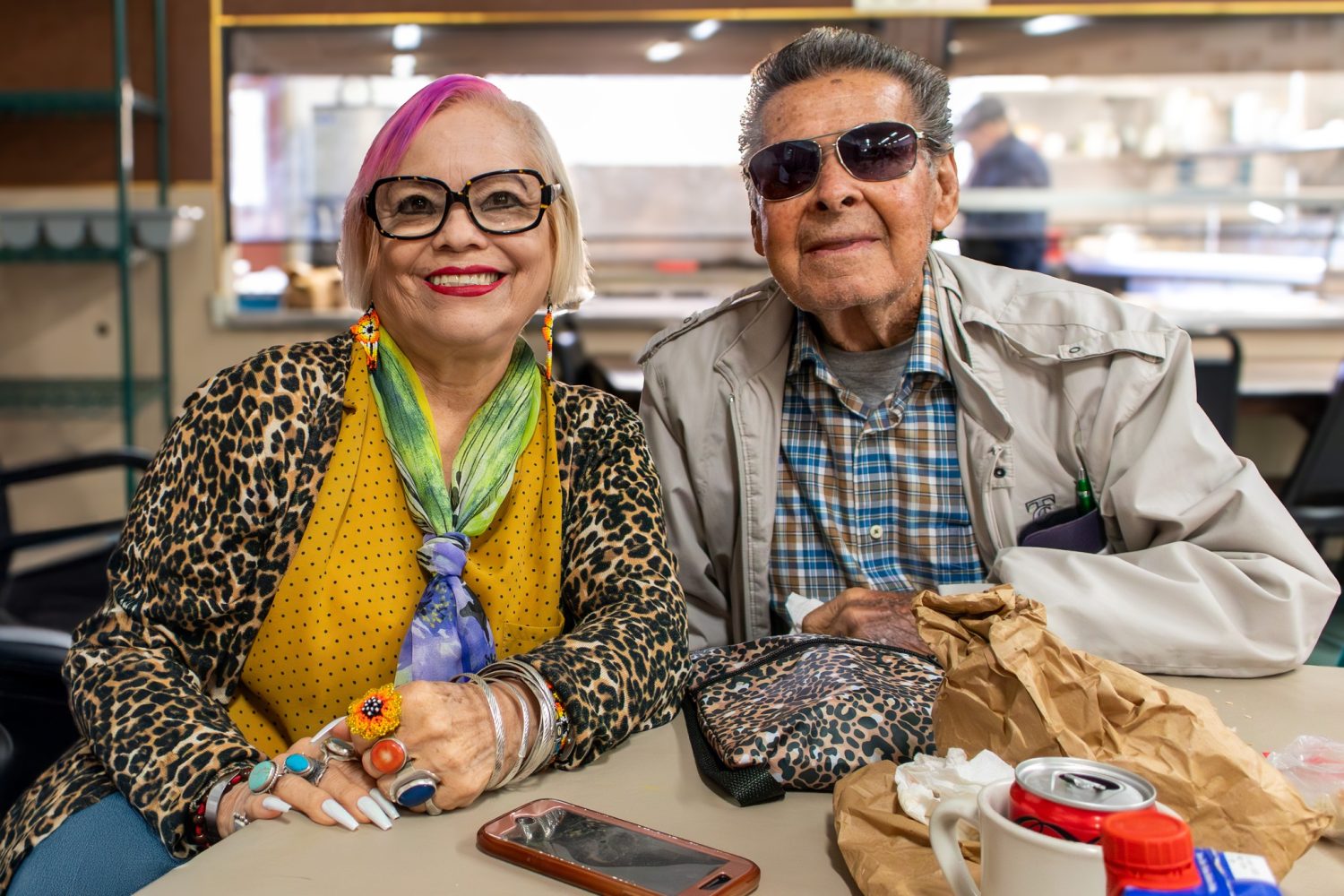
Club 60 is designed for adults 60 and older—but accommodations are sometimes made for younger individuals in need of support. Ross recalled a woman who called to ask if her mother could attend. Though her mother hadn’t yet turned 60, she had suffered a stroke and needed a welcoming community.
“I told her, we’ll make it work,” Ross said. The woman now attends Club 60 every day.
“We’re trying to do something here, right?” he added. “If The Salvation Army is not going to help these people, then who is?”
With that in mind, Club 60 helps participants connect with services like Medicaid and CalFresh food assistance. Ross recalled one regular guest—an unhoused man whose walker’s worn-out wheels needed replacing. Ross helped get them fixed.
Some Club 60 regulars volunteer—serving others, setting tables or greeting newcomers—finding purpose through giving back. Ross sees this as part of what makes the program sustainable, not just as a service, but as a community built by its members.
“We don’t just want to feed people; we want to really see them,” Ross said. “We want to know their name and their story.”
And at Club 60, every story matters.
Do Good:
- Caring is a magazine from The Salvation Army for people who care. People like you! Subscribe to the list and join 20k+ hopefuls who want to explore living to make a difference day-to-day together.








